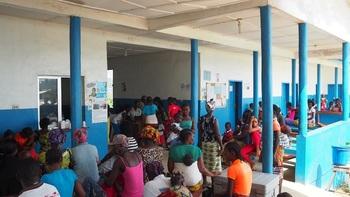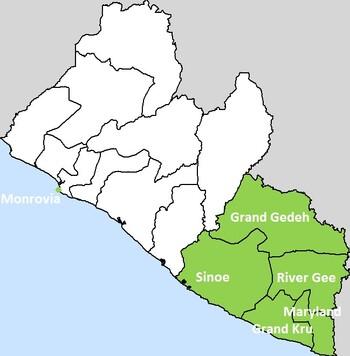Context
During the Ebola outbreak of 2014-2015, more than 10,600 cases of illness and 4,800 deaths were recorded in Liberia. This shows that the Liberian health system was unable to respond effectively to crises. Even before the outbreak, however, it faced various systemic challenges that facilitated the spread of the virus and impeded countermeasures at all levels. There were various reasons for this. On the one hand, the disease surveillance and data processing for identifying initial cases were inadequate, as was contact tracing, and the laboratories had only poor diagnostic options and a limited number of staff. Furthermore, emergency care was poor at all levels of the system, resulting in a lack of coordination and communication. The clinical treatment of Ebola patients was also insufficient. This resulted in a high mortality rate, hospital infections and a high rate of infection among health care staff.
Against this background, the Ministry of Health of the Republic of Liberia, working together with the National Public Health Institute of Liberia (NPHIL), has set itself ambitious targets for improving health security. It aims to reduce the risk of epidemics and improve access to secure and high-quality health services to ensure general health care.
Objective
The general resilience of the system has been enhanced and the specific aspects of emergency care and disease control have been increasingly strengthened.
Approach
As well as supporting the Ministry of Health and the National Public Health Institute of Liberia, the project focus is on five counties in the south-east of the country. This region is the most remote and poorest area of Liberia. The project concentrates primarily on disease prevention and control.
It improves the decentralised management of human resources in health care to ensure that the right staff are deployed in the right location at the right time. It also supports the national laboratory system’s capability to make a greater contribution to disease surveillance and to the diagnosis and treatment of diseases. This measure strengthens both resilience and the quality of care.
The project also helps to improve disease surveillance and response in counties, districts and municipalities. This enhances the system’s capacity to monitor and respond to outbreaks of disease and strengthens the municipalities’ level of ownership.
Reliable health systems research contributes greatly to strengthening the system. To this end, the project is working with both the Ministry of Health to develop a research agenda and the Tubman University in Harper (Maryland).

